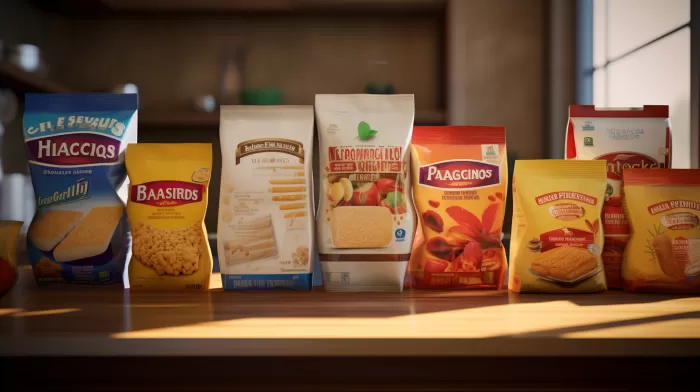When it comes to eating healthy, one major factor that may be working against us is the way food is marketed. Misleading and ambiguous health claims made by food companies can confuse consumers and make them believe that the processed foods they consume daily are aiding their health when, in reality, they are leading to serious illnesses and weight gain.
According to a study by the University of Houston, most people have difficulty understanding nutrition information on food packages, leading them to consume products that contribute to obesity. The research found that people are easily swayed into believing that processed foods, which are often high in sugar and lacking nutrients, are good for them simply because the packaging suggests they are naturally filled with nutrients. Even though the nutrition facts panel on food packages is required by the U.S. Food and Drug Administration, people do not know how to interpret the information.
So, what can we do to cut through the marketing falsehoods and truly make healthier food choices?
Beware of trigger words
Watch out for trigger words on food packaging, such as “all natural,” “low fat,” or “gluten-free,” which give processed foods an aura of healthiness. Food companies are known to exploit these terms to deceive consumers into thinking that they are buying healthier options. Don’t be fooled by such marketing tactics; always check the nutritional information on the label before making your choice.
Stick to natural, whole foods
One effective solution to ensure that you are consuming healthier meals is to eat natural, whole foods that need cooking rather than processed foods that can be eaten right out of a package. Fresh fruits, vegetables, whole grains, and lean meats are better options than packaged snacks and baked goods.
To revolutionize your eating habits and make informed decisions about your meals, focus on incorporating healthy ingredients that you cook at home rather than relying on pre-packaged foods. While it may take slightly more effort, this approach will allow you to avoid harmful additives, flavorings, and other undesirable ingredients that food companies add to their products.
Ditch the ultra-processed foods
Ultra-processed foods may be convenient, but they lack the essential nutrients and minerals your body needs to function optimally. Instead, choose whole, unprocessed foods that retain all their natural nutrients and provide you with long-lasting energy.
Motivation is key
Develop a mindset of seeking pleasure from natural whole foods and steering away from processed foods. Your motivation to eat healthily should not be focused solely on losing weight or staying slim; instead, prioritize the additional benefits of nourishing your body and maintaining a balanced lifestyle.
Adopt strategies to conquer food cravings
Consider adopting healthier coping mechanisms to handle stress and anxiety, which can often trigger unhealthy food cravings. This could involve practicing mindfulness techniques to tune into your body and emotions or engaging in regular physical activity to release feel-good endorphins and decrease stress levels.
Stay informed and make smart decisions
Stay up-to-date with reliable health websites that offer evidence-based, unbiased nutrition advice. Additionally, learn to read nutrition labels and accurately decipher the information provided. Becoming aware of different serving sizes, daily values, and nutrients available in various foods will help you make better choices, even if you are shopping on a budget.
In conclusion, to improve your health and well-being, it is essential to recognize how food manufacturers use marketing tricks to entice us to consume unhealthy foods and make smarter choices about our diets. Staying aware of the nutrients and ingredients contained in food products, focusing on whole and natural foods, and fostering a healthy mindset toward food will allow you to make a positive transformation in your overall diet.



